Scholarship of Teaching and Learning (SoTL)
In most Canadian Universities, research related to teaching in higher education falls under the auspices of the Scholarship of Teaching and Learning (SoTL) and is closely linked to the work of Ernest L. Boyer and his influential book Scholarship Reconsidered: Priorities of the Professoriate (1990). A recent “reconsideration” of this earlier work can be found here.
At its core, Scholarship of Teaching and Learning asks us to examine our teaching practices through the lens of a scholar (e.g. by asking critical questions, gathering insights and evidence, drawing conclusions from evidence, etc.) For a comprehensive overview,

SoTL Canada does work in this area and has resources and guides that may be of interest available on their website:
Recent Publications by Teaching Hub Staff and Associated Faculty
Driessens, S., & Parr, M. (2022). Humanizing with Humility: The Challenge of Creating Caring, Compassionate, and Hopeful Educational Spaces in Higher Education. The Open/Technology in Education, Society, and Scholarship Association Journal, 2(1), 1–15. https://doi.org/10.18357/otessaj.2022.2.1.22
MacLennan, T., Campbell, T. ., & Carroll, H. (2022). P.O.W.E.R. and The Privileged Poor: Reflections on co-facilitating a virtual professional learning community. International Journal for Students As Partners, 6(1), 137–143. https://doi.org/10.15173/ijsap.v6i1.4890
Pohl, E., Ajadi, T., Soucy, T., Carroll, H., Earl, J., Verduyn, C., & Connolly, M. (2022). “Knowing nothing about EDI:” A collaborative autoethnography exploring how an anti-racist project was created, publicized, and silenced. International Journal for Students As Partners, 6(1), 30–46. https://doi.org/10.15173/ijsap.v6i1.4882
Additional Contributions to SoTL
- Dr. Pat Maher has been elected to the Board of Directors of the Society of Teaching and Learning in Higher Education (STLHE).
- Dr. Pat Maher has been appointed to the Steering Committee of the Ontario Universities’ Council on eLearning (OUCeL).
- Dr. Sarah Driessens is Editor of Collected Essays in Learning & Teaching
- Dr. Pat Maher, has been elected Vice-President (Canada) of the International Society for the Scholarship of Teaching and Learning (ISSOTL). Read the full story here.
Borealis Summer Institute for Teaching and Learning
The Borealis Summer Institute for Teaching and Learning was an important milestone; for cooperation amongst Ontario's Northern Universities, but also as a pandemic response in August 2020. It was developed to provide faculty with support in advance of a first 'true' semester online (Fall 2020), but also celebrate/recognize the 'Great Pivot' that had occurred in Spring 2020. The theme of the event was Moving Online - Managing the Transition to Remote Course Delivery, and it was hosted by Algoma University, Lakehead University, Laurentian University and Nipissing University.
Hosted by:

Virtual Learning Strategy (VLS)
The Virtual Learning Strategy (VLS) was a historic investment by the Ontario Ministry of Colleges and Universities (MCU) in order to grow online and hybrid pedagogies, capacity, and open education content in the province. The VLS program was supported by eCampus Ontario, and Nipissing University was a leader and partner on many successful proposals. These include:
Designing and Developing High-Quality Student-Centred Online/Hybrid Learning Experiences

Designing Quality Tech-Enabled Learning Experiences

The overarching objective of this 4-module course will be to facilitate the development of any person who seeks to create quality, technology-enhanced (digital) learner experiences. Learners will leave the course able to take the best resources and experiences from this course and apply them to the design and structures of their own courses. Through use of a course-building blueprint, learners engage in activities around course design, course enhancement through interactive design, how to resource learning effectively, and how to activate learning.
Learning To Be Human Together
Co-designed by Students, Faculty and Staff at OCAD University, Mohawk College, Brock University, Trent University, Nipissing University, University of Windsor, University of Toronto-Mississauga
This resource explores the importance of, and processes for, humanizing education. We start by exploring what humanizing teaching and learning means: to acknowledge that our relationships are foundational to the work that we do. It aims to make learning inclusive with connection, access, and meaning-making at its core.
Liberated Learners

Co-designed by Students, Faculty and Staff at Trent University, Brock University, Seneca College, University of Windsor, McMaster University, Cambrian College and Nipissing University
Following in the footsteps of the Ontario Extend: Empowered Educator program is its predecessor, Ontario Extend: Liberated Learners. The original program worked to prepare educators to be better able to teach in a digital realm. The Liberated Learner seeks to do the same for the learners themselves. As such, the project has four modules: The Learner, The Navigator, The Collaborator, and The Technologist. Taken together, the modules aim to enable a well-rounded and ready-for-almost-anything post-secondary learner. For Learners. By Learners.
Universal Design for Learning (UDL) for Inclusivity, Diversity, Equity, and Accessibility (IDEA)

The Universal Design for Learning (UDL) for Inclusion, Diversity, Equity, and Accessibility (IDEA) project was a collaboration between 10 universities and colleges across Ontario to develop a 6-module open educational resource for post-secondary educators to help them understand their responsibilities under the Accessibility for Ontarians with Disabilities Act (AODA). It will help instructors and others to incorporate principles of UDL and considerations of EDI and Indigenisation in their learning environments.
Uncovering The Hidden Curriculum (UTHC)

- Curriculum broadly refers to the collection of content and experiences within a course or program. For the most part, the curriculum is quite structured, and expectations are explicit. Most educators are familiar with the word curriculum but might be surprised to learn that there are other curriculum types. These different types can be thought of as layers that interact with one another and contribute to the educational experience for students. The hidden curriculum is one of these layers that refers to the unwritten and unofficial lessons learners acquire implicitly and are not taught formally. The hidden curriculum is present at all stages of education but becomes increasingly relevant for learners who are navigating post-secondary learning environments and exploring career opportunities.
- Because the hidden curriculum is often not explicitly taught, we believe it can have a negative impact on student success and mental health. Not all students undertake post-secondary studies with equal pre-existing knowledge of hidden curriculum skills. After all, access to this knowledge is heavily influenced by numerous factors such as culture and socioeconomic background. For example, the ability to network and make professional connections requires knowledge of norms and expectations that some students may not have had a chance to learn if the family or school they grew up in did not provide opportunities to learn these norms and practice them. Discrepancies in hidden curriculum knowledge between individual students or groups of students can reinforce social inequities and hinder access to opportunities within and beyond post-secondary education.
- For these reasons, we created Uncovering the Hidden Curriculum. We believe that educators are positioned to promote the importance and relevance of topics that aim to target the hidden curriculum. Explicitly embedding this content in their courses promotes equitable access to knowledge and skills that will benefit students during their academics. Learning these transferable skills will also equip students to face a variety of professional and interpersonal challenges in their lives.
Professional Learning Communities (PLCs)
To date, the Teaching Hub has hosted 8 professional learning communities for faculty and staff to come together, learn from one another, and examine critical themes that impact existing teaching practice. Each PLC discussion is anchored in current scholarship. Works examined thus far are included below.
To demonstrate your interest in participating in upcoming PLC discussions, reach out to teachinghub@nipissingu.ca.
Small Teaching Online
Flower Darby with James M. Lang
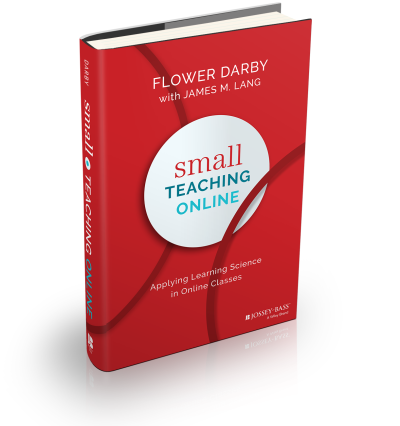
ISBN: 9781119619093
Borrow from the NU Library
A Walking Curriculum
Gillian Judson
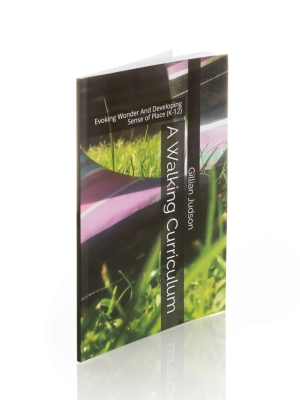
ISBN: 9781973540649
Not yet available at the NU Library
Transforming Universities in the Midst of Global Crisis
Richard Hil, Kristen Lyons, Fern Thompsett
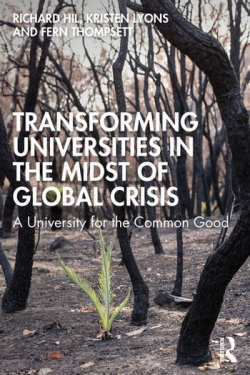
ISBN: 9781553797753
Borrow from the NU Library
Advancing Online Teaching
Kevin Kelly and Todd Zakrajsek
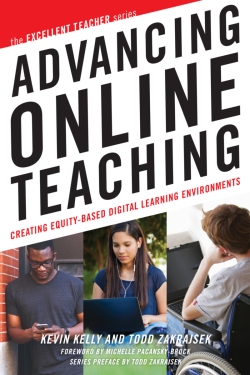
ISBN: 9781620367230
Borrow from the NU Library
Potlatch as Pedagogy
Sara Florence Davidson and Robert Davidson
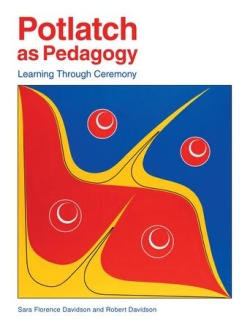
ISBN: 9781553797753
Borrow from the NU Library




